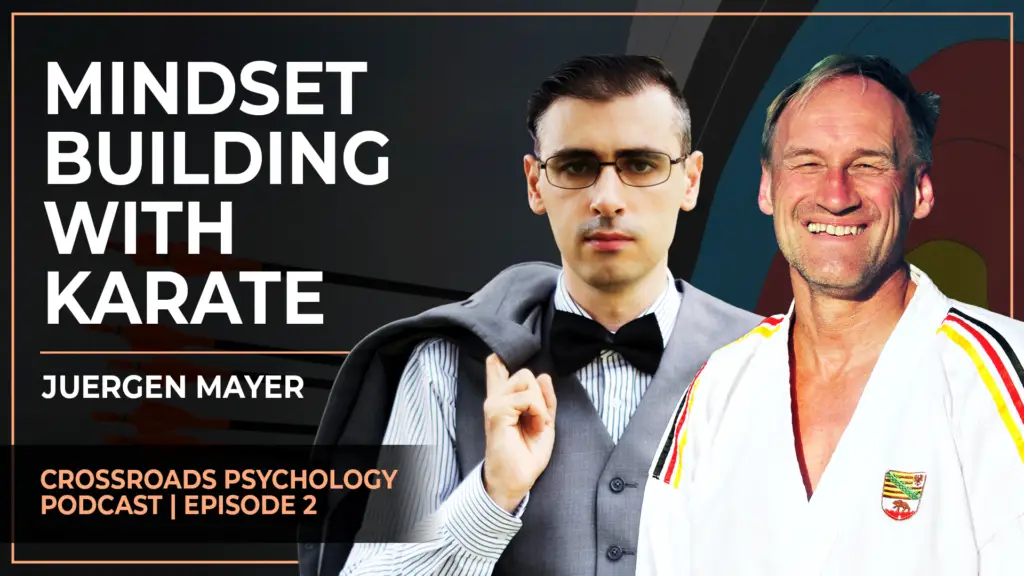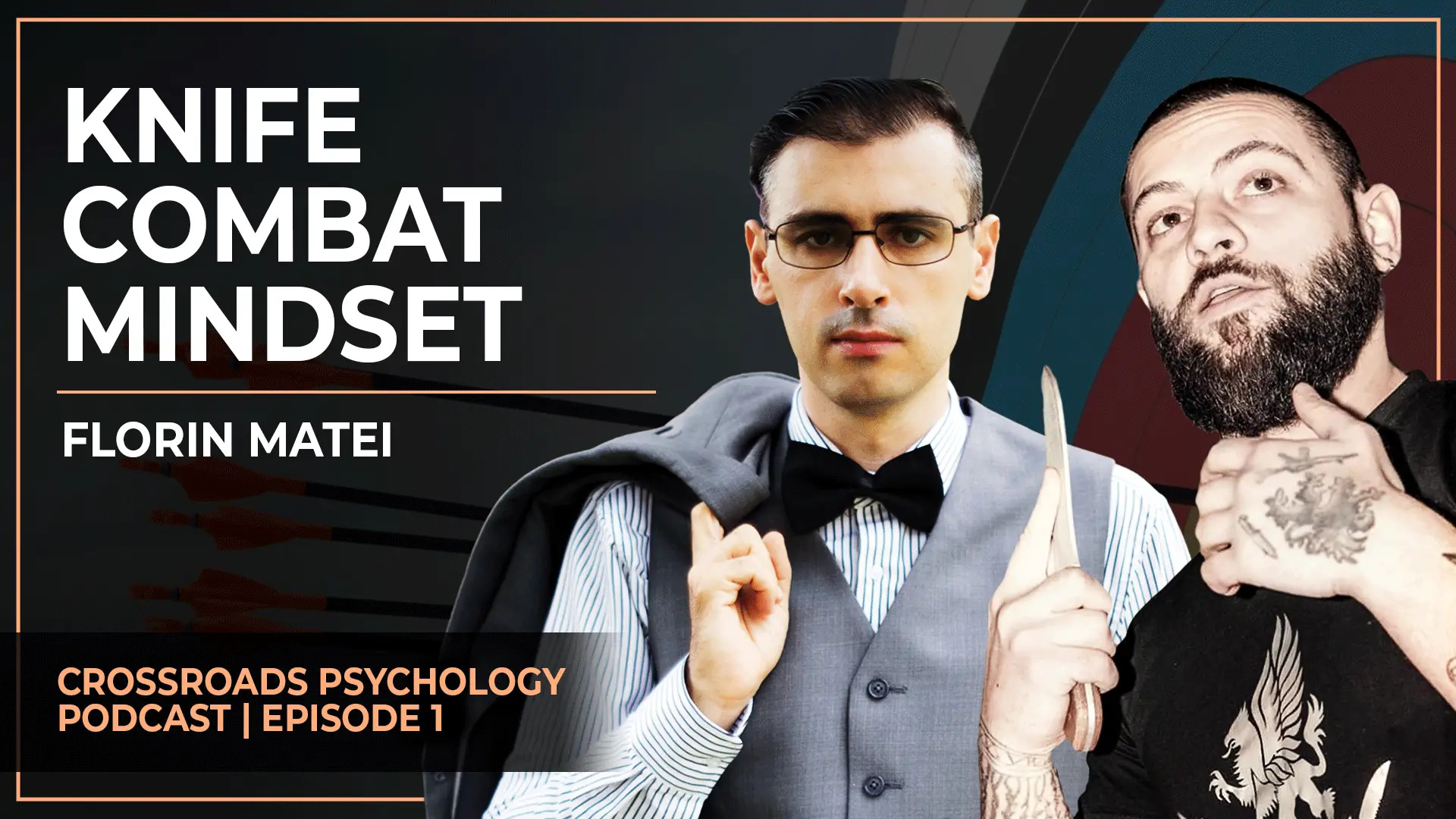In this episode of the Crossroads Psychology Podcast I discuss with Juergen Mayer is a 7-dan Shotokan Karate instructor from Germany, how to build a WINNER’S MINDSET with KARATE.
Available: Apple Podcast | Spotify | Google Podcasts | RadioPublic | RedCircle | YouTube
Powered by RedCircle
Juergen Mayer is a 7-dan Shotokan Karate instructor from Germany who has been practicing this martial art since 1978 (the year I was born). From 1983 onwards, he’s been running his own karate clubs and by now he’s trained 3 generations of students. He’s had a successful competitive career both nationally and internationally in both kata and kumite. He is also a coach, a weapon specialist, and a speaker who promotes karate to the world.
Topics discussed:
1: You’ve been a martial arts practitioner all “my” life and I’m 43 years old. Let’s establish some context… How did you start and how has karate shaped you as a person, both physically and mentally?
2: Why karate Shotokan? I also practiced karate Shotokan for a while in my youth and found it quite rigid…
3: Now that we have some background, I want to be very practical in our discussion. There are so many topics we can discuss, but in this video-podcast I want to focus specifically on how karate training and how skills learned in karate can be applied in real life. For starters, can we make a distinction of how kata and kumite are “seen” in the dojo?
4: So let’s look at kata more specifically… I see practicing kata, the sequence of forms and positions, as both a mental as well as a physical exercise. I know that some martial artists focus only on kata… What are the benefits, outside of the dojo of the forms in kata.
5: Kumite or “training with an adversary” or sparring is maybe what people think of when you mention karate. While in a dojo or a tournament, kumite is limited by rules, do you think kumite is a valid training practice for self-defense in the real world.
6: I want us to address the issue of self-defense (as a karate practitioner, but not exclusively) from 3 aspects: 1) mindset, 2) training, and 3) situational awareness.
7: So, how can karate help the practitioner develop a “winning mindset” or a “fighter’s mindset”. And here I’m not referring to being or becoming a bully, but rather to mental toughness.
8: What does karate training entail and I’d like you to explain how the training in the dojo can be transferred into real-life benefits.
9: In one of your YouTube videos you were talking about the importance of leg movement and the exercises one can do to increase their speed of movement on the ground (not necessarily referring to kicking)… Can you elaborate more.
10: So how does one take their karate training and become a person who understands their environment, who understands threats, who can avoid or neutralize or overcome a threatening situation? Q11: Let’s end with your top 3 practical tips for someone who’s in a hot situation on the street
★ SUBSCRIBE TO JUERGEN’S YOUTUBE CHANNEL → https://www.youtube.com/channel/UC9hX…
★ FOLLOW MATEI FLORIN ON FACEBOOK → https://www.facebook.com/jmsport.org
▶︎ VISIT JUERGEN’S WEBSITE → http://www.jmsport.org
Watch the video-podcast below:
Get in touch: YouTube | Facebook | Twitter | Instagram | LinkedIn | Email


